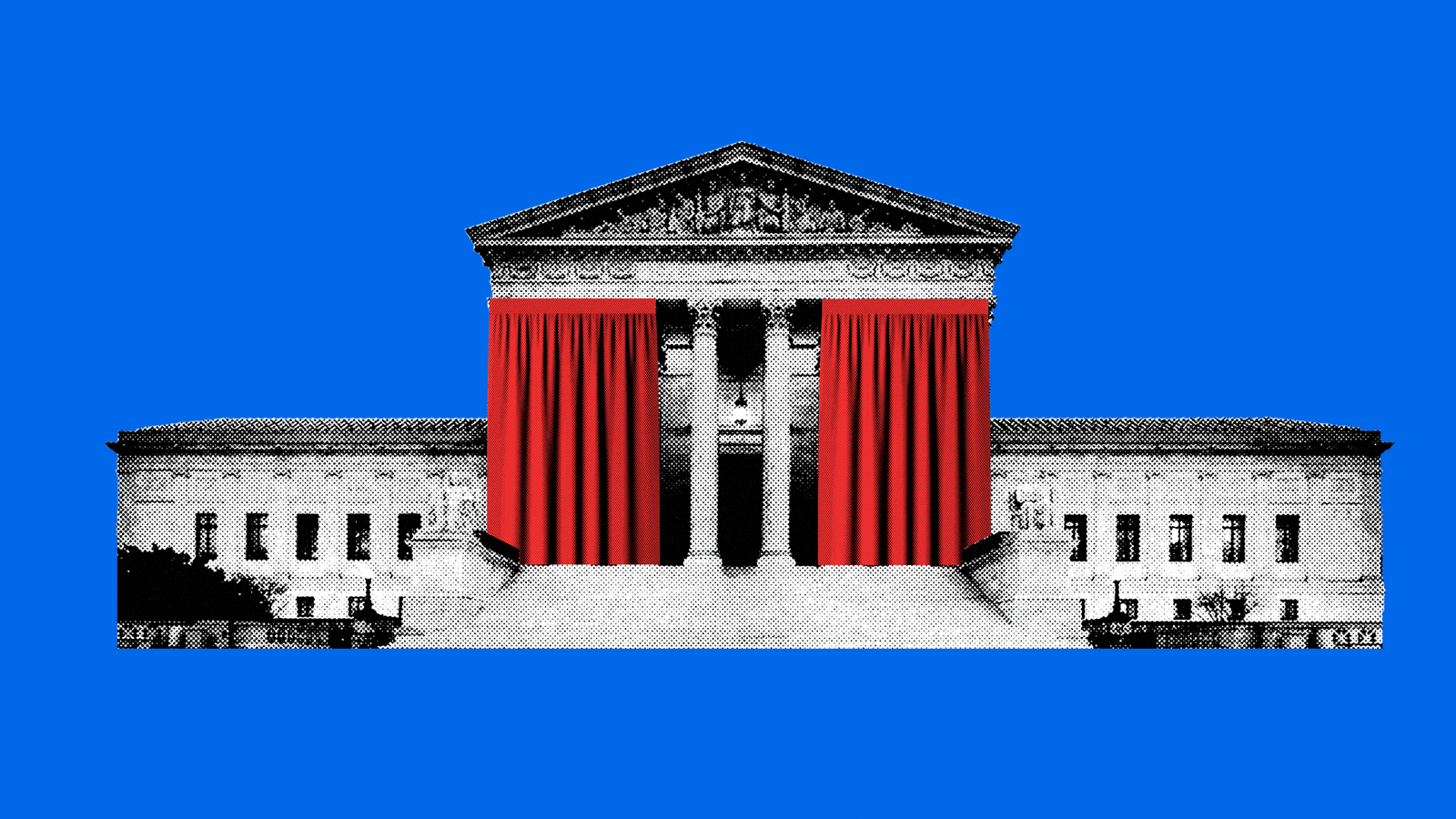The Supreme Court has entered the dog days of summer, after spending the end of the term careening from ethics scandal to ethics scandal.
In April, ProPublica revealed that conservative billionaire Harlan Crow, in a previously undisclosed deal, bought a property co-owned by Justice Clarence Thomas. Days later, Politico reported that shortly after Justice Neil Gorsuch’s confirmation, the CEO of a leading law firm with business before the Court bought 40 acres of land in which Gorsuch was part owner.
This reporting could not have happened without access to public records about the justices and their assets. ProPublica reporters hopped on a plane to Georgia to rummage through local real estate records. Politico found a deed in a Colorado county’s public records that eventually pointed to Gorsuch.
Journalists regularly rely on public records like these when reporting about alleged conflicts of interest, noncompliance with election law requirements (like those in 2021 that chased then-New York City mayoral candidate Eric Adams), and false personal histories (like the web of lies peddled by disgraced Rep. George Santos).
A judge, for example, might be hearing a case—despite leasing the mineral rights on his land to an energy company that is a party to the case. A politician’s spending of public funds might be questioned based on his real estate holdings. And scores of judges might fail to recuse despite owning stock in the companies before them.
Back in D.C., the justices have taken a nothing-to-see-here approach to their own public records-fueled scandals. And, soon, they may well be right.
Congress, states, and organizations that draft laws to be enacted by them are actively engaged in making it more difficult for the press and public to learn even basic information about judges, law enforcement, and other public officials—information that has, until now, been widely available.
The laws, broadly drafted to protect public officials’ privacy by putting information about them off limits to the public, are spreading across the country.
A law adopted by Congress in 2022 as part of the nearly 2,000 page National Defense Authorization Act allows federal judges (including Supreme Court Justices) and anyone living in their homes to demand takedowns of information about them held by private parties. And, if they refuse, the “at-risk individual” can seek monetary damages from them.
Sen. Rand Paul originally blocked the bill, arguing it should cover members of Congress too. He might get his wish. Sen. Amy Klobuchar introduced an amendment to the must-pass defense spending bill that would extend secrecy to members of Congress too.
Congress originally adopted the judicial security law, named the Daniel Anderl Judicial Security and Privacy Act (or Daniel’s Law, for short), after U.S. District Judge Esther Salas’ son, Daniel, was tragically murdered at her home by a mentally unstable lawyer.
Judge Salas became a champion of the federal law—and related ones adopted at the state level, including her home state of New Jersey. “The free flow of information from the internet allowed this sick and depraved human being to find all our personal information and target us,” Judge Salas said in a recorded 2020 statement.
But these laws, however awful their beginnings and admirable their intentions, are proving to have significant unintended consequences.
They undercut Americans’ right to learn about and monitor public officials by pulling a veil of secrecy around even the most basic personal information about them. This makes it easier for misguided officials to game the system and skirt ethics rules.
Recognizing the importance of the public’s right of access to this kind of information, more than two dozen transparency organizations, writing in opposition to a proposed model bill similar to Daniel’s Law, cataloged some of these negative consequences. They cited a “growing trend to limit access to information that could identify public officials and government employees.”
In West Virginia, local courts determined that they could not comply with their state’s version of Daniel’s Law, so they pulled down wholesale from their systems previously public information. “Why do we care?” a local paper asked. For one, something as basic as an address allows reporters to “distinguish one John Smith or Jane Doe from another.”
A Florida rule that required redaction of personal information so delayed release of public court filings that the Florida Supreme Court withdrew it after “years of complaints from the public, government employees, and the media.” In doing so, the Court recognized that the rule had run up against its “commitment to safeguard the public’s right of access to court records.”
In New Jersey, Daniel’s Law has created chaos. One township removed its YouTube channel on the belief that leaving it up may violate the law. A county clerk limited access to real estate records. And now, New Jersey lawmakers no longer have to list their home addresses on financial disclosure forms. New Jersey’s law is backed up by $1,000 penalties for violations.
The fallout from the law is coming to a head.
The ACLU of New Jersey filed a lawsuit in July on behalf of reporter Charles Kratovil. According to the suit, Kratovil was investigating a New Brunswick city official who allegedly retired in 2010 with a $115,000 pension, and then was rehired 16 months later for $120,000, in addition to his pension. During his reporting, Kratovil learned that the official allegedly moved two hours away from New Brunswick.
Unable to get answers to his questions about the change in residence, the suit says Kratovil attended multiple city council meetings and, on one occasion, referenced the official’s new address but omitted the street number. Days later, the New Brunswick Police Department sent a warning that Kratovil “cease the disclosure of such information and remove the protected information from the internet,” citing Daniel’s Law and told him to “be guided accordingly.”
Kravotil is seeking a ruling from a New Jersey court that New Brunswick’s use of Daniel’s Law to prevent reporting on potential misconduct is unconstitutional under the federal and state constitutions. Its case is simple: “Government should not threaten news reporters with prosecution or civil liability if they write a news story or share information about something questionable going on with a public servant’s address.”
Even if Kravotil succeeds on his claims, and there is good reason to believe he will, his case won’t overturn New Jersey's Daniel’s Law altogether. But its facts should give lawmakers around the country pause, especially as the Senate considers ethics rules for the Supreme Court this summer.
No matter how laudable the goals behind these laws are, the laws are simply too easy for public officials to abuse at the expense of the public.









